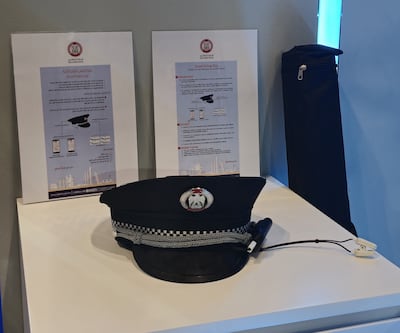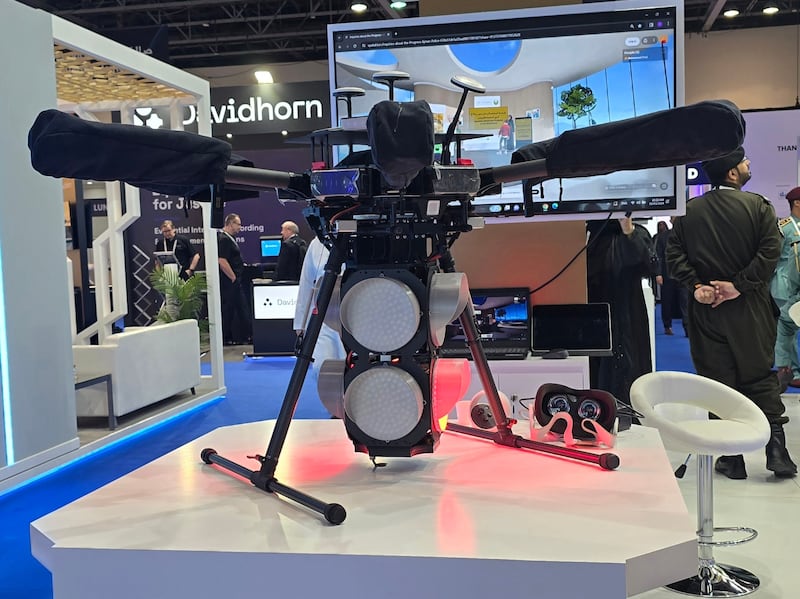The Ministry of Interior and Abu Dhabi Police have unveiled a drone traffic light and a smart hat as high-tech solutions to common problems.
The innovations were on display at the World Police Summit in Dubai, which brings together law enforcement officers, police departments and organisations from around the world to share their expertise in the fight against crime.
Developed by the Ministry of Interior’s innovation centre, the drone traffic light is designed to replace any malfunctioning traffic lights to ensure the uninterrupted flow of vehicles and improve safety on the roads.
“The concept originated from the centre's creativity and manufacturing section, and was developed locally,” said Maj Saeed Al Melaihi from the centre.
The drone will step in when traffic lights are compromised by bad weather or technical problems, instead of officers directing vehicles.
“Using this drone traffic signal eliminates the need for police officers or public intervention to manage traffic in the event of traffic signal malfunctions,” Maj Al Melaihi said.
It took about two months of development and testing that involved trials in various areas of Abu Dhabi, including in windy conditions.
The drone can operate for up to 40 minutes in stable weather and 20 minutes in windy conditions.
The official launch is expected soon.
Smart police hat

Another, more futuristic, invention from Abu Dhabi Police is a "smart police hat" designed to measure levels of tension and focus in officers with high-stress duties.
“Both hardware and software components of this technology were developed in-house by Abu Dhabi Police,” said Maj Mohammed Al Hosani from Abu Dhabi Police’s innovation section.
It is designed for officers in critical roles, including those in operations rooms, patrols and aircraft monitoring.
The hat is linked to an application on the user's mobile phone.
“Through a dry sensor that isolates surrounding noise and analyses brain signals, the hat provides real-time data on the officer's concentration levels,” Maj Al Hosani said.
“It also offers recommendations and exercises to enhance focus.”
The hat was tested more than 350 times and showed promising results, according to the force. In development for about three years, it is now in its final testing phase.
“It's an investment in a technology that reduces errors and saves time,” Maj Al Hosani said.







